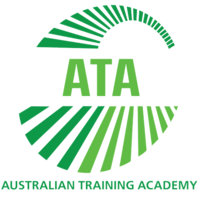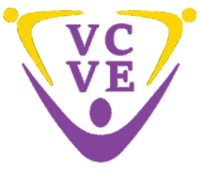
How do I become a first aider?
Provide First Aid
- There are no mandated entry requirements.


Provide Advanced First Aid
- There are no mandated entry requirements.


Provide First Aid in Remote or Isolated Site
- There are no mandated entry requirements.
 My First Aid Course Brisbane
My First Aid Course Brisbane
Provide Cardiopulmonary Resuscitation (CPR)
- There are no mandated entry requirements.
 Asset College
Asset College
Advanced First Aid
- There are no mandated entry requirements.



Wilderness First Aid
- There are no mandated entry requirements.





Provide Basic Emergency Life Support
- There are no mandated entry requirements.








Related occupations
Enrolled Nurse
An Enrolled Nurse provides patient care, administers medications, monitors vitals, and supports daily needs, working in hospitals, healthcare, or residential settings.
Aged Care Nurse
An Aged Care Nurse provides specialised care to elderly patients, monitoring health, administering treatments, and assisting with daily activities.
Mental Health Nurse
A Mental Health Nurse provides care to patients with mental health issues, working in various settings and collaborating with healthcare providers to administer treatments.
Nursing Assistant
A Nursing Assistant supports nursing staff by helping patients with daily tasks, monitoring vital signs, and ensuring their comfort.
Patient Care Assistant
A Patient Care Assistant aids patients in hospitals by assisting with daily tasks, monitoring vital signs, and supporting medical staff.
Operating Theatre Technician
Operating Theatre Technicians prepare operating rooms, assist during surgeries, and support patient transport and recovery.
Rehabilitation Nurse
A Rehabilitation Nurse supports patient recovery and independence after illness or injury, collaborating with healthcare teams and following personalised care plans.
Clinical Nurse Specialist
A Clinical Nurse Specialist provides expert patient care, collaborates on treatment plans, and requires strong communication and teamwork skills.
Acute Care Nurse
An Acute Care Nurse delivers advanced care in hospitals, performs assessments, collaborates with teams, and makes quick, analytical decisions.
Critical Care Nurse
A Critical Care Nurse delivers specialised care in emergency and ICU settings, performs assessments, assists procedures, and communicates well in teams.
Perioperative Nurse
A Perioperative Nurse cares for patients before, during, and after surgery, assisting surgical teams and ensuring safe recovery processes.
Renal Care Nurse
A Renal Care Nurse delivers specialised care to patients with kidney impairments, managing treatments like dialysis and transplants.
Remote Area Nurse
A Remote Area Nurse provides essential healthcare services in isolated communities, addressing various medical needs and emergencies.
School Nurse
A School Nurse provides health care, treats minor injuries, offers advice on health topics, and adapts skills to student needs within a school setting.
Nurse Unit Manager
A Nurse Unit Manager leads a nursing team, manages operations, solves problems, rosters staff, and communicates with staff, patients, and families.
Nurse Practitioner
A Nurse Practitioner delivers advanced healthcare, conducts checks, monitors treatments, and collaborates with teams in diverse, shift-based settings.
Midwife
A Midwife supports pregnant women, assists births, provides postnatal care, and requires strong interpersonal skills, attention to detail, and teamwork.
Registered Nurse
A Registered Nurse provides patient care, administers medication, treats wounds, and collaborates with health teams, requiring strong communication.
Director Of Nursing
A Director of Nursing manages nursing staff and programs in healthcare settings, ensuring patient care standards and compliance.
Nurse Educator
Nurse Educators mentor and train student and practising nurses in hospitals and educational settings, preparing lessons and assessing progress.
Surgical Nurse
Surgical Nurses, or perioperative nurses, provide care to patients before, during, and after surgery, ensuring their safety and comfort.
Paediatric Nurse
Paediatric Nurses specialise in caring for children and adolescents, providing support in hospitals and community health settings.
Emergency Nurse
Emergency Care Nurses provide urgent treatment in ERs and ICUs, managing critical cases and responding swiftly to patient needs.
Community Health Nurse
Community Health Nurses deliver primary health care services in community settings, providing support and education to patients in various locations.
Oncology Nurse
Oncology Nurses are qualified Registered Nurses (RNs) who specialise in the nursing support and care of cancer patients. They hold post-graduate qu...
Palliative Care Nurse
A Palliative Care Nurse offers compassionate support to patients with terminal illnesses, focusing on pain management and emotional well-being.
General Practice Nurse
General Practice Nurses provide primary health care in clinics and surgeries, assisting with patient assessments, treatments, and health education.
IVF Nurse
IVF Nurses assist couples undergoing fertility treatments, providing care and support in clinics, hospitals, and research centres.
Occupational Health Nurse
Occupational Health Nurses provide workplace health care and safety management, ensuring worker wellbeing and compliance with safety regulations.
Research Nurse
Research Nurses care for terminally ill patients, providing support and symptom management in hospitals, aged care, and home settings.
Home Care Nurse
Home Care Nurses deliver nursing and personal care to patients at home, with RNs providing advanced treatments and ENs focusing on personal care.
Clinical Nurse Consultant
Clinical Nurse Consultants enhance patient care and operations in specialised units, providing expert advice on clinical practices and standards.
Cardiac Nurse
Cardiac Nurses support patients with heart conditions, performing diagnostic tests, administering medication, and collaborating with cardiologists.
Intensive Care Nurse
Intensive Care Nurses deliver acute care to critically ill patients, collaborating with medical teams and managing life-threatening conditions.
Neonatal Nurse
Neonatal Nurses specialise in caring for premature and ill infants in NICUs, administering treatments, supporting parents, and conducting tests.
Nurse Manager
Nurse Managers oversee clinical units, supervise staff, manage finances, and ensure operational efficiency, requiring strong leadership and clinical experience.
Anaesthetic Nurse
An Anaesthetic Nurse assists in administering anaesthesia during surgery, ensuring patient stability and comfort while managing equipment.
Nurse Midwife
A Nurse Midwife provides comprehensive care and support to women during pregnancy, childbirth, and postnatal periods in various settings.
Trauma Nurse
A Trauma Nurse delivers critical care to patients with severe injuries, stabilising conditions and collaborating with doctors to ensure effective treatment.
Triage Nurse
A Triage Nurse evaluates and prioritises patients in emergency settings, ensuring timely treatment based on their condition and urgency.
Recovery Nurse
A Recovery Nurse provides specialised post-operative care, monitoring patients, managing pain, and ensuring safe recovery from anaesthesia.
Psychiatric Nurse
A Psychiatric Nurse provides specialised care for individuals with mental health issues by assessing patients, administering treatments, and supporting recovery.
Clinical Facilitator
A Clinical Facilitator guides nursing and midwifery students in clinical settings, enhancing their skills through practical experiences and mentorship.
Common questions
How much does a First Aider earn?
In Australia, First Aiders are generally not paid for their work, unless it is part of your role in the workplace. You may be given some funds to cover your expenses but you will donate your time for free. First Aiders often have another job as well as their volunteer first aider role.
What are the job opportunities for a First Aider?
There are currently no accurate figures for the number of people acting as First Aiders in Australia. This role may be part of employees’ roles at work or they may be volunteering their time to provide first aid in the community. First Aiders may be required across all regions of Australia.
Source: Australian Government Labour Market Insights
How do I become a First Aider?
If you’d like to be able to provide first aid, consider enrolling in a Certificate III in Basic Health Care. You’ll learn techniques such as CPR, basic clinical care and critical infection control. You’ll also learn about sensitivities for cultural groups and emergency communication skills.
Further reading


How to start a career in counselling
7th September 2020)

